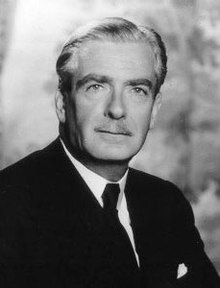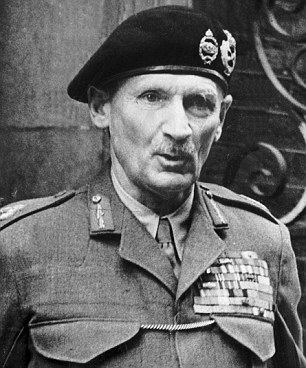Operation Keelhaul a Most Despicable Chapter in American History
Operation Keelhaul was the deportation by brute force to concentration camps, firing squad or hangman’s noose of millions of people, mainly White, Christian ethnic Russian and other eastern Europeans who were already in the lands of freedom and under the direct control of allied forces back into the hands of the brutal dictator Stalin where he either outright murdered them or worked them to deathFew survived — millions perishedThe Allies are to blame
Operation Keelhaul – Allies Sent Anti-Communists to their Deaths
February 3, 2018
(Masonic Jews Churchill, FDR, and Stalin at Yalta. Missing is their partner, Adolf Hitler)
PROOF THAT THE WEST IS DE FACTO COMMUNIST AND OUR
WARTIME LEADERS WERE WAR CRIMINALS WITH NO CONCERN
FOR INDIVIDUAL FREEDOM.
At Yalta, Churchill and FDR agreed to repatriate 2.5 million anti-Communists
Russians against their will. About a half had served in the Wehrmacht. Most were exterminated or imprisoned in the Gulag. This despicable act – codenamed Operation Keelhaul after a naval torture — was kept secret for 50 years. (To be fair, however, Americans treated German POWs as badly, and Germans their Russian POWs and vice versa.) But the Allies sent back anti Communists from the Bolshevik Revolution who were no longer Russian citizens. In general, wars are human genocides perpetrated by the Illuminati.
The Secret Betrayal, Nikolai Tolstoy, Charles Scribner’s Sons, 1978. 503 pages. Hardcover. ISBN: 0-684-15635-0.
Reviewed by Charles Lutton
(Abridged by henrymakow.com)
From 1943 until early 1947 Western countries, led by Britain and the United States, returned nearly two and a half million prisoners of war and refugees to the Soviet Union, regardless of their individual wishes. Additional thousands of old émigrés (people who had fled Russia after the Bolshevik Revolution and the Civil War) were also forcibly sent to the USSR, along with other people of Russian descent who had never lived within the borders of Russia…
With the invasion of Western Europe in June 1944, thousands of Russian prisoners fell into the hands of the Allies. Many were forced laborers who had been working on the Atlantic Wall for the Todt Organization. Others were simply refugees. However, the Western Allies were surprised to discover that thousands had willingly joined the Wehrmacht. Soviet Foreign Minister Molotov asserted in May 1944 that the number of Russians serving in the German armed forces was “insignificant.” Actually, approximately one million of Stalin’s subjects had joined the other side.
By late June the British Foreign Office decided to repatriate all Russian POWs, callously disregarding the consequences of such a policy (early in the war Stalin had made it clear that any Soviet citizens who were even temporarily out of Communist control would be regarded as traitors. Official Orders threatened “deserters” and POWs with draconian measures). On June 24, 1944, Patrick Dean, the Assistant Legal Adviser of the Foreign Office, declared: “In due course all those with whom the Soviet authorities desire to deal must … be handed over to them, and we are not concerned with the fact that they may be shot or otherwise more harshly dealt with than they might be under English law.”
The War Office held a different view. Britain’s SOE (Special Operations Executive, an organization created in November 1940 to encourage, direct, and supply resistance groups in countries occupied by the Axis) had distributed leaflets to Russians in the German armed forces promising that Russians surrendering to the Allies could receive political asylum if they wished. Despite stiff protests, the military was unable to prevail upon the Foreign Office to reverse its unilateral decision to return all Russians to Soviet authorities.

British Foreign Minister Anthony Eden, left, who, Tolstoy reports, “was responsible for initiating the whole policy,” first reached an agreement with the Soviets on repatriation at the Moscow Conference in October 1944. The United States joined with Britain and the Soviet Union in reaffirming the program of repatriating Russians at the Yalta Conference. However, nothing in the agreement on POWs referred to the return of Soviet citizens who were unwilling to go back to the USSR. Nor did it provide that those who had never been citizens of the USSR should be delivered to Stalin.
During the summer of 1944, the British began to ship thousands of Russians from POW and refugee camps to the USSR. When informed of their destination, many of the prisoners committed suicide. The Foreign Office did what it could to suppress news of the suicides because, warned Patrick Dean, “these suicides might possibly cause political trouble [in Britain].”
British officers who delivered prisoners to Soviet ports, such as Murmansk and Odessa, witnessed NKVD execution squads murder Russians as they left ship. Responding to a plea that mercy be shown to those who did not wish to return to the Soviet Union, Eden wrote that the “provisions of the Crimean [Yalta] Agreement” had to be upheld, for “we cannot afford to be sentimental…”
SUNDRY ANTI COMMUNISTS INCLUDED

The British resorted to various ruses in an effort to repatriate anti-Communist elements as easily as possible. For example, at the close of the war, around 50,000 Cossacks were in British-controlled parts of Austria. Along with about 100,000 Georgians, various Cossack tribes had fought with the Germans against the Soviets and, with their families, retreated westward as the Third Reich collapsed. When repatriating the members of the 15th Cossack Cavalry Corps, the British deceived them by telling them that they would first be sent to Italy and ultimately to Canada. In other instances it was necessary to set troops upon the unarmed men, women, children, forcing them into trucks or railroad cars. As they were being rounded up, many displayed documents proving that they were citizens of France, Italy, Yugoslavia, or registered stateless with Nansen passports issued by the League of Nations.
Chapter eleven, entitled “An Unsolved Mystery,” attempts to unravel one of the most appalling incidents in the repatriation story, the handing over to Stalin of long-time opponents of the Soviet regime who technically were exempt from repatriation because of the fact that they had never been Soviet citizens. The agreed upon definition of a “Soviet citizen” was “a person born or resident within the pre-September 1, 1939, boundaries of Russia (who had not acquired another nationality – or a Nansen passport, which would render the subject Stateless) …”
By this definition, thousands who had fled Russia during the Civil War and who found themselves under British control at the end of the Second World War should not have been sent to the USSR. Among the thousands delivered to Stalin was 76-year-old Czarist General Peter Krasnov; Andrei Shkuro, a cavalry leader who had fought for the Czar and had been decorated by the British in the First World War and who fought with the German 1st Cossack Cavalry Division in the Second World War: and Sultan Kelech Ghirey, leader of the Caucasians.
British officers informed these men that they were requested to attend a meeting with Field Marshal Alexander. They boarded trucks and were then turned over to Soviet authorities in Austria. As Tolstoy relates: “Even the Soviet authorities who received them were astonished that the British should have included these people in the consignment. At Judenberg (the delivery point in Austria) the Red Army General Dolmatov asked in surprise why the old émigrés had been handed over: to his knowledge the Soviet authorities had never demanded them. NKVD interrogators were frankly incredulous.”
WHITE RUSSIANS MURDERED
Most of the older émigrés had fought as Allies of the British in the First World War. On January 12, 1947, Generals Krasnov and Shkuro, along with the German commander of the 15th Cossack Cavalry Division, General Helmuth von Pannwitz, were executed, after having spent 19 months in the infamous Lubianka Prison. Most of the other Cossack and German officers of the Cossack units were also executed. “In this way,” the author explains, “the British Government had in essence sentenced to death without trial German officers who had been received by them as prisoners of war….”
Military officers ordered to enforce repatriation were often surprised at the alarm expressed by the refugees when they learned that they were to be shipped eastward. Lt. Michael Bayley related how Russian peasants who had been working as slave laborers on German farms begged to be allowed to stay in Germany. The perplexed British officer was told by members of the Polish Armored Division that “of course the Russian peasants were better off in Germany – why couldn’t we let well enough alone.”
Another officer explained that he and his fellow officers believed the Cossacks’ fears to be groundless. British wartime propaganda had portrayed the USSR as being “a kind of utopian socialist state … and that they would behave compassionately towards these people whom we were deputed to send back.” Throughout the war there had been a blackout of news unfavorable to the Soviet system, thus it was hardly surprising that the military men detailed to enforce repatriation felt that the USSR was governed by the “Four Freedoms,” and that Russian refugees consequently had little to fear from their own government.
OBJECTIONS
Protests against the repatriation policy were being raised by the summer of 1945. The Commander of the 2nd Polish Corps, General Anders, complained that the Soviets were trying to kidnap Polish citizens. On July 5, 1945, the Vatican sent a plea to the British Foreign Office and the U.S. State Department that thousands of Ukrainians in the West should not be sent back. John Galsworthy of the Foreign Office minuted: “We do not wish to attract attention to this aspect of the Agreement which is, of course, in opposition to our traditional attitude towards political refugees …”
Other objections were raised by Allied occupation commanders. In Italy, Field Marshal Alexander finally told a Soviet Repatriation Mission under General Basilov that he would not be allowed to bully unwilling Ukrainians into returning to Russia. General Eisenhower likewise viewed with distaste the use of force against helpless Russian refugees and POWs. He placed a temporary freeze on repatriation operations and asked his superiors in Washington for a definite ruling on the issue.

Field Marshal Montgomery (LEFT) followed suit and in the Fall of 1945 ordered that force no longer be used for the repatriation of Soviet nationals. The American and British governments thus assumed the onus for continuing the repatriation policy. Galsworthy of the Foreign Office wrote, “We made up our minds long ago that we could not try to save Russians from their Government, however much we might wish to do so on purely humanitarian grounds.”
Apologists for the forced repatriation policy have claimed, without evidence, that “Stalin might have contemplated holding liberated British prisoners hostage.” Why then were hundreds of thousands of Russians forcibly repatriated after all the British and American prisoners liberated by the Red Army in eastern Germany were returned to the West?
Tolstoy believed that the Allied diplomats wanted to continue to co-operate with the Soviets in building a new post-war world order. “Suggestions that the Soviet Union could represent a potential threat, however ably presented, were ridiculed … Foreign Office officials held that Stalin’s intentions towards the West were beneficent, and that to work in cooperation with him was … essential to British interests. The fate of the Russians whose return they enforced was an unfortunate but unavoidable sacrifice to the greater aim.”
Nikolai Tolstoy has proven that the British were guilty of flouting the principles of British law and the Geneva Convention. The one shortcoming of the book is Tolstoy’s lack of emphasis on the role played by the United States government in the repatriation policy. Despite this flaw, Tolstoy has written a book which sheds considerable new light on one of the most tragic episodes of the twentieth century.
source: https://www.henrymakow.com/2018/02/Allies-Sent-Anti-Communist-Russians-to-their-Deaths.html
source: The Journal of Historical Review, Winter 1980 (Vol. 1, No. 4), pages 371-376.
OPERATION KEELHAUL 1945 V
